Marketing Automation Statistics (How Many Marketers Use Automation?)
Are you ready to gain massive insights into how you can improve your business through these marketing automation statistics?
Hey, if your competition uses automation and you don’t, you’ll likely stay (far) behind.
Unlocking the true potential of marketing automation has become a top priority for businesses in today’s digital landscape.
The role of automation can help companies across all sectors, including enhancing their marketing strategies and streamlining customer engagement. (Save time and money!)
Discover how businesses leverage automation to boost conversion rates, optimize lead nurturing, and drive revenue.
And that’s when these marketing automation stats come into play.
This post covers:
- How Many Marketers Use Automation?
- Benefits Of Marketing Automation Statistics
- Marketing Automation ROI Statistics
- Marketing Automation Adoption Statistics
- Marketing Automation Trends & Challenges Statistics
- Other Marketing Automation Statistics
Marketing Automation Statistics (Our Top Picks)
- Over 70% of successful companies use automation
- Almost 60% of marketers use automation for task management
- Marketing automation market revenue to hit $13+ billion by 2030
- 63% of companies using marketing automation outperform competitors
- Marketing automation can boost sales productivity by 14%+
- 78% say list segmentation is marketing automation’s best feature
- 180% higher conversion rates for automated emails than batch emails
- 60% of companies find implementing marketing automation challenging
- Almost 70% of users say marketing automation is worth the price
How Many Marketers Use Automation?
1. Over 70% of successful companies use automation
A study of 400+ mainly B2B marketers found that 72% of successful companies use marketing automation, compared to only 18% of unsuccessful ones.
Note: A report by HubSpot says that 76% of companies use automation.
Although the percentages vary slightly, generally speaking, many benefit from automation – and you should too.
Moreover, 84% of successful companies leverage CRM/sales automation, while only half (42%) of unsuccessful companies do.
Source: ResearchGate, HubSpot
2. 87% of companies plan to introduce marketing automation
Even though the value of marketing automation software isn’t a new thing and many are familiar with its advantage, still very few use it extensively.
Nearly 90% of companies report they plan to use marketing automation software, while only 2% of marketers said they don’t plan to use it in the future. An additional 10% think marketing automation won’t bring the company the expected value.
Yup, marketing automation IS the future.
Source: ResearchGate
3. Marketing is the largest sector that uses automation
When it comes to automation software, marketers take advantage of it 76% more than sales and a whopping 139% more than finance.
Source: HubSpot
4. Almost 60% of marketers use automation for task management
The three most common usages of automation amongst marketers are task management, content automation and chatbots.
| Reason | Share of respondents |
| Task management | 58% |
| Content automation | 42% |
| Chatbots | 31% |
Source: HubSpot
5. 47% of companies use bots in marketing
The rise of (chat)bots is continuously growing; however, less than 50% of companies use them in their marketing strategies. 43% don’t use it, while 10% of respondents aren’t sure whether they use bots or not.
Source: HubSpot
6. 55% of marketers use automation in email marketing
Compared to 40% in 2021, 15% more marketers adopted automation in 2022 for email marketing. Social media management and paid ads are the second and third leading areas of marketing automation.
| Area | 2022 | 2021 |
| Email marketing | 55% | 40% |
| Social media management | 44% | 39% |
| Paid ads | 26% | 32% |
| Landing pages | 27% | 26% |
| Campaign tracking | 23% | 23% |
| Content management | 29% | 22% |
| Account-based marketing | 21% | 21% |
| Live chat | 17% | 21% |
| Workflows/visualization | 18% | 19% |
| SEO efforts | 18% | 18% |
We also curated a list of the most important social media statistics you should know about.
Source: Ascend2
7. Marketing automation market revenue to hit $13+ billion by 2030
The marketing automation industry is on a continuous rise and such is the forecast all the way to the year 2030. The market is expected to hit almost $5.9 billion in revenue in 2023.
| Year | Marketing automation market revenue |
| 2030 | $13.7+ billion |
| 2029 | $12.1+ billion |
| 2028 | $10.7+ billion |
| 2027 | $9.5+ billion |
| 2026 | $8.4+ billion |
| 2025 | $7.4+ billion |
| 2024 | $6.6+ billion |
| 2023 | $5.8+ billion |
| 2022 | $5.1+ billion |
| 2021 | $4.7+ billion |
Source: Statista
8. Marketing automation software market revenue to hit $11.2 billion by 2031
According to Statista, the marketing automation software market revenue is expected to grow to $5.4 billion in 2023. The rising trend will continue in the coming years, expecting to surpass the $11.2 billion mark.
Source: Statista
9. 58% of marketers use marketing automation for upselling
Nearly 60% of marketers leverage marketing automation when they upsell.
The upselling automation happens before the purchase, during the purchase or after the purchase – and this can all be (easily) automated.
Source: Moosend
Benefits Of Marketing Automation Statistics
10. 63% of companies using marketing automation outperform competitors
More than 60% of companies that use marketing automation technology outperform their competitors (who don’t).
Automating just some marketing processes can bring you ahead of your competition, so don’t sit on the opportunity; turn it into your competitive advantage.
Source: Lenskold Group
11. Marketing automation increases leads and conversion rates
The amazing benefit of marketing automation never ends – it was found that those who use automation in marketing increase leads by 80% and conversions by 77%.
Source: VentureBeat #1
12. 65% of marketers find automation effective
While the percentage of those who feel their marketing automation is “extremely effective” is lower than those feeling “very effective,” they still all benefit significantly from applying it. In fact, a very tiny percentage of respondents say it’s ineffective.
Source: HubSpot
13. Marketing automation can boost sales productivity by 14%+
It’s always good to know that automation can increase sales productivity and reduce marketing overhead. With marketing automation, you can drive sales up by 14.5% and reduce marketing overhead by 12.2%.
By the way, have you seen our extensive sales statistics roundup?
Source: Invesp
14. 74% say marketing automation’s most significant benefit is saving time
The only thing you can’t get back is time. And if there are tools you can use to save it, that’s a big plus for many professionals.
Nearly 75% of professionals say using marketing automation technology to save time is one of its most considerable benefits.
Even though there’s no such thing as setting and forgetting it because you still need to monitor it, doing it all manually takes A LOT more time, so use automation instead.
Source: Invesp
15. 450%+ increase in leads due to marketing automation
While this isn’t something every business and organization can expect, a study found an insane 451% increase in qualified leads just by using marketing automation software. Who doesn’t want more leads?
What’s more, 39% report that it also improves the quality of leads.
Source: Oracle
16. 49% name marketing personalization possibilities as the biggest benefit
It’s said time and time again that including the element of personalization in marketing scores you much better results. And almost 50% of respondents say that one of the most important benefits of marketing automation is making personalization possible.
Source: Oracle
17. 320% more revenue for those who use automated emails
When comparing automated emails with non-automated ones, the former can generate a staggering 320% more revenue.
Fun fact: Customers who receive an automated abandoned shopping cart email are 2.4 times likelier to complete the purchase.
Speaking of which, we also curated a list of the must-know shopping cart abandonment statistics.
Source: Campaign Monitor
18. 78% say list segmentation is marketing automation’s best feature
78% of marketers even go so far and say they “can’t live without” the list segmentation feature that marketing automation contains. This comes in extra handy in email marketing (complementing the above stat).
Source: Campaign Monitor
Marketing Automation ROI Statistics
19. 63% of professionals who implement marketing automation expect to reap benefits within 6 months
When you use a new technology that promises great results, you expect them. And the same goes for 63% of professionals who decide to implement marketing automation – they want to see benefits whing half a year of using it.
As a result, 44% actually do see a return within six months. The reasons why the rest don’t vary, but this is a good fact that raises confidence in every one considering using marketing automation.
Source: Oracle
20. $1 in, $5.44 back
A study found that organizations that use marketing automation enjoy a return of $5.44 for every dollar spent in the first three years with a payback period of under six months.
Source: Nucleus Research
21. 180% higher conversion rates for automated emails than batch emails
Instead of using batch emails, using the automation process can increase conversion rates by 180%. Besides, the click rate is 380% higher, too.
According to VentureBeat, triggered emails can drive over 620% higher conversions responses of “batch and blast” emails.
Source: VentureBeat #2
22. Companies that nurture leads generate 50% more sales-ready leads for 33% cheaper
Lead nurturing and automation go hand in hand exceptionally well. And the companies who know what they’re doing generate half more sales at 33% less cost. Plus, nurtured leads make 47% bigger purchases than non-nurtured leads.
Source: Adobe #1
23. 47% of users name sales revenue as the most important marketing automation strategy
While increased lead generation and lead nurturing received the most votes, nearly half of the respondents say their most important goal of marketing automation is (an increased) sales revenue.
Source: Invesp
Marketing Automation Adoption Statistics
24. 33% say lack of internal expertise is the biggest marketing automation adoption barrier
While companies name different marketing automation adoption barriers and challenges, three of the more common ones are lack of internal expertise (33%), poor/insufficient data (24%) and lack of prioritization (24%).
Source: ResearchGate
25. 60% of companies find implementing marketing automation challenging
A pretty significant percentage of companies report they found the implementation of marketing automation into their system challenging. Also, 16% say it’s difficult to create quality automation.
Source: Oracle
26. Those successful with digital marketing will increase their spending on marketing automation
63% of companies who have been successful with digital marketing plan to invest more in marketing automation.
Source: Oracle
27. Nearly half of the companies use marketing automation
49% of companies are using marketing automation in some way or another because they know how much value it brings them.
From email and SEO to advertising (don’t miss our advertising statistics) and social media, some automate only parts of their businesses and some nearly everything. Actually, 75% of marketers say they benefit from at least one type of marketing automation tool.
Source: Moosend
28. 58% state price as the main driving force when choosing a marketing automation solution
When shopping for a marketing automation solution, almost 60% of marketers say price is the main driving force, followed by ease of use.
| Driving factors | Share of respondents |
| Price | 58% |
| Ease of use | 54% |
| Customer service | 27% |
| Customization options | 24% |
| Integration capabilities | 22% |
| Breadth of features | 21% |
| Depth of features | 19% |
| Data visualization/analytics | 13% |
| Streamlined onboarding/training | 11% |
| Data consolidation capabilities | 10% |
Source: Ascend2
Marketing Automation Trends & Challenges Statistics
29. 32% of surveyed said they combine AI with marketing automation
Artificial intelligence and marketing automation work together well across various sectors and tasks, removing manual work while improving the customer experience. (I’m sure you’ll also gain much value through our customer experience statistics.)
| Area | Share of respondents |
| Paid advertising | 32% |
| Email personalization | 32% |
| Product/content recommendation | 22% |
| Personalizing email subject lines | 22% |
| Predictive analytics | 18% |
| Account identification | 18% |
| Chatbots | 16% |
| Campaign send/deployment timing | 16% |
| Segmentation | 12% |
Source: Ascend2
30. 60% plan to increase their marketing automation budget
Most professionals plan on increasing their marketing automation budgets – yes, because it works for them. Meanwhile, 30% reported that their budget wouldn’t change, while only 10%+ said they’d decrease it.
Source: Statista
31. The chatbot market is forecast to grow to approx. $1.25 billion by 2025
There’s no sign of stopping the usage of chatbots. The chatbot market was at only $190 million in 2016, but it’s expected to grow to approximately $1.25 billion by 2025.
Fun fact: The AI market is predicted to grow to $118 billion by 2025.
Source: Statista
32. 1/3 expect marketing automation to become even more important in digital marketing
The future of digital marketing will consist of a lot of non-human work, which is what we’re already experiencing today. 1/3 of professionals expect marketing automation to become an even more critical role in the future of digital marketing.
Source: Oracle
33. 80% of the advertising process will be automated
Although the data is for 2022, and the percentage may be even larger today, Phil Gaughran of McGarryBowen predicted that 80% of the advertising process to be automated.
Source: Adobe #2
Other Marketing Automation Statistics
34. Hubspot is the largest marketing automation provider
The three largest marketing automation providers are Hubspot, Active Campaign and Adobe Experience Cloud, taking 50% of the pie.
Moreover, almost 35% of customers use Hubspot, while only around of customers 15% Active Campaign and Adobe Experience Cloud combined.
Source: Statista
35. 40% plan to adopt marketing automation within 12 months
According to a survey involving industry professionals, marketers and publishers, 40% said they plan to adopt a marketing automation platform in the coming twelve months. On the other hand, 20% said they’d stop using the technology.
Source: Statista
36. Half of the marketers nr. 1 “want” when using a marketing automation solution is easy integration
When it comes to the marketers’ needs for features in a marketing automation solution, 50% expect easy integration into their existing content management, CRM and ERP systems.
| Marketing automation features | Share of respondents |
| Easy integration into existing systems | 50% |
| Lead qualification/scoring capabilities | 45% |
| Content creation and email workflows | 35% |
| eCommerce storefront integration | 12% |
Source: Oracle
37. Almost 70% of users say marketing automation is worth the price
With many features and functions, a marketing automation system can sort out for you, it’s a worthy purchase for 69% of users. But only 11% of companies say it’s too expensive and not worth the cost.
Source: Oracle
38. 70% of marketers feel measuring the success of marketing automation is easy
To be more exact, 11% say it’s “extremely easy” and 59% “somewhat easy,” while the other 30% find it somewhat or extremely difficult when measuring the success of marketing automation in achieving their important objectives.
Source: Ascend2
39. Marketing automation can boost productivity by 20%
If none of the above benefits of using marketing automation have convinced you yet, knowing that using it can boost your business productivity by 20% might finally do the trick.
But this is just of a small segment of the value that adopting this technology brings.
Source: Nucleus Research
40. 90% higher customer retention for omnichannel marketing automation
Those companies that use omnichannel marketing automation experience 90% greater customer retention than those using single-channel automation.
Additionally, those using three or more channels enjoy a 250% higher purchase rate.
Source: Omnisend
41. 50% of SMBs use marketing automation for email drip campaigns
Instead of sending them manually, half of the small and medium-sized businesses leverage marketing automation for their email marketing drip campaigns.
Source: Statista
42. Automating social media and ads can save you 6 hours per week
Implementing marketing automation tools for updating social media profiles with fresh posts as well as managing ads, can save you six hours per week.
Source: Entrepreneur
43. 48% of marketers say automation builds a stronger customer relationship
Because sales and marketing automation enables real-time interactions 24/7, nearly half of marketers say it helps them create long-lasting and stronger customer relationships. (It also helps them boost lead generation and retention.)
Source: Italian Journal Of Marketing
Conclusion
“Set it and forget it.”
Okay, that’s not precisely how automation works, but as you learned from the marketing automation statistics above, it can save you plenty of time and money.
Not just that, but you’ll also have way more satisfied customers (when you introduce personalized automation).
You can achieve much higher levels of efficiency once you embrace the power of marketing automation.
As technology evolves, staying informed about the latest trends and statistics in marketing automation will be essential for staying ahead of the competition and driving sustainable growth.
Take the power of automation to your advantage, unleash new possibilities and drive your marketing efforts to the next level.

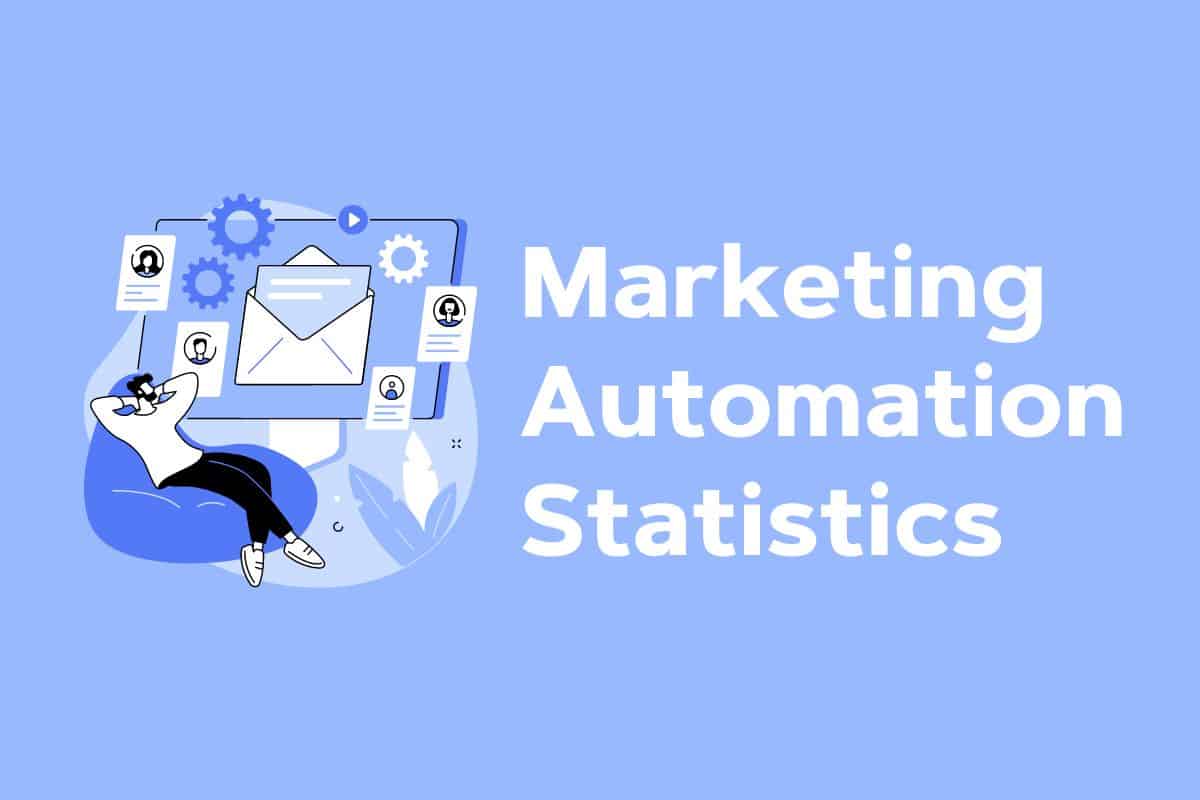
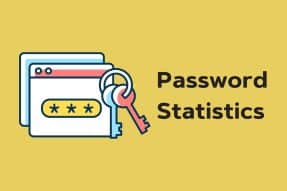

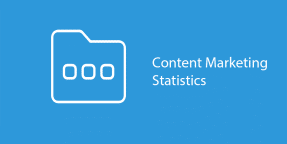
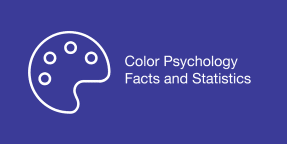

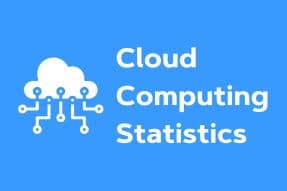
This Post Has 0 Comments